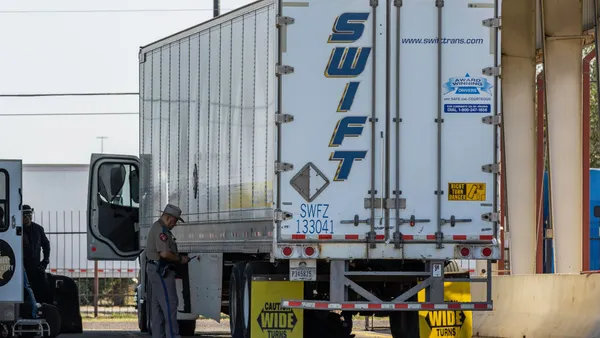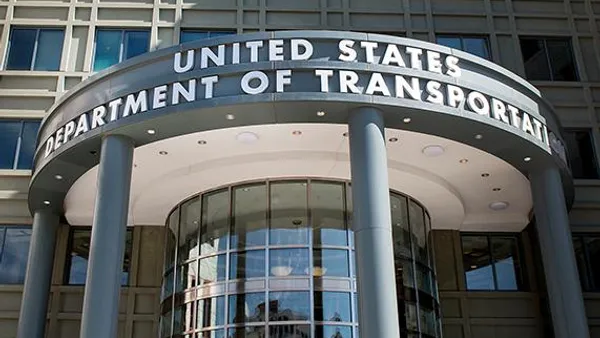Dive Brief:
- Justice Department attorneys are trying to save a 2023 Federal Highway Administration rule mandating states to set declining emissions targets; federal judges in Kentucky and Texas found the rulemaking was improper.
- The judicial decisions dealt blows to the emissions regulation by siding with states that sued the FHWA, FHWA Administrator Shailen Bhatt, the Department of Transportation and DOT Secretary Pete Buttigieg.
- The Justice Department appealed the federal decisions in May, and extensions allowed the government to file opening briefs through Aug. 30 and Sept. 4 in the cases.
Dive Insight:
The FHWA rule aimed to set an initial deadline of Feb. 1, 2024 for states to submit emissions reduction plans. But many states argued this went beyond the agency’s authority.
In defending its rule, the agency stated it wanted to increase the resiliency of the National Highway System by mitigating the cost of damages from sea level rise, extreme weather, flooding, wildfires or other natural disasters.
Yet a coalition of GOP attorneys general said the agency’s actions were beyond what Congress allowed the agency to do. Commentators also said the Environmental Protection Agency, rather than the FHWA, is responsible for emissions regulations.
“Twenty-one states have sued to prevent enforcement of the rule. To them, this is a major question that Congress hasn’t or perhaps couldn’t delegate to the agency: requiring auto-emissions reductions would reach far beyond roadbuilding to dictate changes to state economies, narrow their transportation options, and displace their greenhouse-gas policy,” U.S. District Judge Benjamin Beaton wrote.
The FHWA rulemaking was linked to a federal law from 2012, the Moving Ahead for Progress in the 21st Century Act. The agency cited the law in making the new performance measure as well as the Infrastructure and Investment Jobs Act of 2021, referencing funding and policy priorities.
Beaton wrote that a “tailpipe-emissions reduction forced on states under the guise of highway planning is just another example of a regulatory elephant squeezed into a statutory mousehole.”
In his opinion and order, Beaton found that allowing an FHWA administrator to “shove national greenhouse-gas policy” onto state departments of transportation would corrupt the country’s separation of powers.
A district judge in the Texas case also agreed with the complaint that the FHWA overstepped its authority. The judgment is essentially halting the rule nationwide, the agency said.
An opening brief for the case regarding Kentucky and 20 other states is due in the Sixth Circuit U.S. Court of Appeals in Ohio. Texas’ case involves the Fifth Circuit U.S. Court of Appeals in Louisiana.














